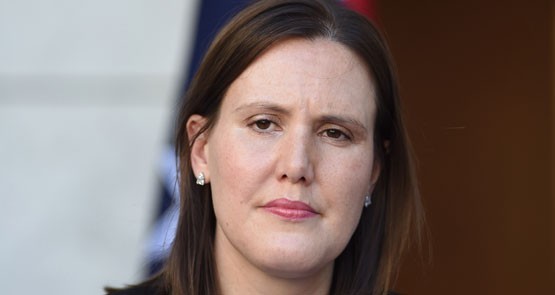
Since Assistant Treasurer Kelly O’Dwyer failed her first test as minister earlier this month, when the Senate rejected her attempts to impose governance reforms on the industry super sector, there’s been a spate of media stories critical of industry super.
Just this week, The Australian ran a remarkable beat-up claiming “unions have reaped $5.4 million from industry super funds”. In fact the $5.4 million is made up of directors’ fees paid for trade union representatives across all industry super boards — just like company board directors are paid fees. To provide some context, the big banks each routinely spend $2 million to $3 million a year remunerating their non-executive directors — total non-executive director remuneration just for National Australia Bank alone in 2014 was $3.7 million.
More to the point, just once did the Australian‘s story mention (near the end) employer involvement in industry super, again demonstrating the lie that the Coalition and industry super’s media critics like to peddle: that the sector is run by unions. The whole raison d’etre of industry super is that it is jointly run by employers and unions, with both sides exercising equal control. But it is routinely described by Coalition politicians as being union-run — preferably “venal” or “corrupt” unions.
And because industry super funds are jointly run by employer groups, they also receive fees for their representatives. Missing from the Oz’s story was that employer representatives receive more than union representatives. Industry data obtained by Crikey shows that, on average, fees for union representatives across the sector were around $48,000 in 2013-14, while fees for employer representatives were nearly $54,000.
And compared to their competitors, both union and employer representatives have earned their fees: industry super funds have for years consistently outperformed the retail super funds owned by the big banks and AMP. You’d think the Coalition would be happy to point out the strong performance of employer representatives in achieving returns for ordinary Australians, but so rabidly ideological is the Coalition about super that any role for unions is seen as a profound evil.
Things got better still yesterday, when the government’s senior go-to journalist Simon Benson launched another attack under the headline “Union’s ad splurge”. Benson began with the “union-controlled” line and then declared that industry super had spent $31 million on advertising in the last year. What an outrage — that participants in a highly competitive market might advertise, particularly when the big banks each spend hundreds of millions of dollars a year in advertising and have their own huge in-house teams of lobbyists to sway politicians and public servants. Of course, if News Corp is so unhappy with industry super advertising, it could always decline that revenue, given the company’s tabloids have carried four separate industry super advertising campaigns since 2012, including that ubiquitous “In Good Hands” ad series in 2014.
Where these stories are sourced from is unclear — they may perhaps merely be the work of diligent but misinformed journalists. Or perhaps Kelly O’Dwyer, smarting at her defeat on governance, played a role in providing material. It should be noted, by the way, that O’Dwyer was an executive at National Australia Bank from 2007-09, “where she looked after extremely rich families worth more than $30 million”. Her predecessor as assistant treasurer looking after superannuation, Josh Frydenberg, was an executive of Deutsche Bank from 2005-09. His predecessor in the portfolio, Arthur Sinodinos, was also a NAB executive. But no one would ever suggest that the backgrounds of each of those ministers influences their view of industry super — after all, the Coalition has loathed the sector long before the current generation of ministers arrived on the scene.








Good article – sick and tired of the constant attacks on industry based super (where mine is). Waiting for a bunch of articles from the same journos criticising the big banks for their less than fantastic management of various financial products over the years.
You of all people criticising others for irrational attacks deserves a run on all available comedy channels, Bernard, doesn’t it.
Thank you for providing all that detail that The Australian ommited
No wonder large swathes of Electorate loath ideological Politicians . . .
On this occasion I congratulate you Bernard.
Hands off our industry super (and in my case, allocated pension).
They look after us very well, which is more than can be said for the retail funds!
This putrid government is openly trying to get their mates on to the boards of industry super…so they can reduce our retirement incomes by 25%. Pi*s off!!